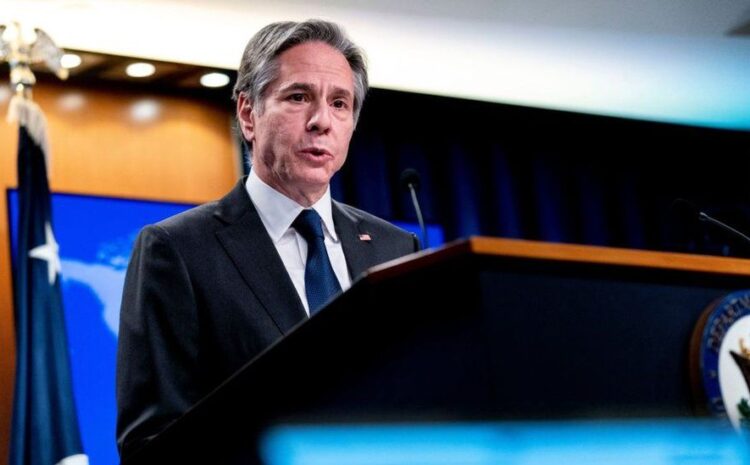
GETTY IMAGES Image caption, Mr Blinken will seek reportedly seek to offer Russia a “diplomatic off-ramp” as tensions mount in Ukraine
Mr Blinken will hold discussions with President Volodymyr Zelensky in Kyiv, before meeting with his British, French and German counterparts in Berlin.
On Friday he will meet Russia’s Foreign Minister Sergei Lavrov in Geneva.
Russia has repeatedly denied any plans to launch an attack on neighbouring Ukraine.
However on Tuesday senior US officials said that Moscow could launch an invasion at “any point”.
The White House Press Secretary Jen Psaki told reporters that Russia’s build up of tens of thousands of troops near its border with Ukraine had created an “extremely dangerous situation”.
A senior state department official, speaking on condition of anonymity, told AFP news agency that Mr Blinken will seek to offer Mr Lavrov a “diplomatic off-ramp” from the crisis during talks on Friday.
The diplomatic tour follows inconclusive talks between Moscow and western nations last week and state department officials say that Mr Blinken will seek “to reinforce the United States’ commitment to Ukraine’s sovereignty and territorial integrity” during his meeting with President Zelensky.
The top US diplomat is also expected to seek to shore up support among Western allies to impose what officials called “massive consequences and severe economic costs on Russia” should an invasion occur.
The German foreign minister Annalena Baerbock has already signalled that any further escalation “would carry a high price for the Russian regime — economic, political and strategic,” during a visit to Kyiv on Monday.
But Ukraine’s defence minister Oleksii Reznikov urged Western governments to impose immediate sanctions on Moscow.
Meanwhile, President Vladimir Putin’s government has made a raft of demands to western governments, including a demand that Nato’s expansion any further to the east is stopped and that it limits its activities in other eastern states, such as Poland.
In an essay published on Monday, the UK’s defence secretary, Ben Wallace, accused Russia of using Nato as a “strawman” to justify an invasion of Ukraine, accusing President Vladimir Putin of being motivated by “ethnonationalism”.
